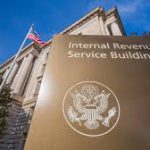When it comes to mutual funds offered under 401(k) plans, I’ve always believed that the multiple share classes was something out of an alphabet soup. I’m not an advisor, so I don’t know how or why there is so many share classes, but it puts a cloud on what should be a transparent proposition: what the investment costs and what the advisor is getting for recommending it.
I believe one of the positive developments you’ll see from the fiduciary rule is the elimination of many share classes from this alphabet soup, which always puts the plan sponsors on the hook for potential liability when a less expensive share class is readily available. The fiduciary rule with the best interest contract exemption will help eliminate share classes that are put in place for the best interest of the advisor and not of the plan sponsors and participants. Brokerage firms and mutual fund companies will come up with the great idea that less is more, so there will be less available share classes for retirement plans and that will end up saving participants money in administration expensive. Tibble v. Edison was a watershed because it put share classes as a atopic that is a big concern for plan sponsors. Requiring all advisors to act in the best interest of clients will end the practice of selecting funds and share classes based on the trails they make for advisors.
You will still have share classes, dealing with the size of the plan, but there will be far less in terms of classes with varying fees for the advisors.







